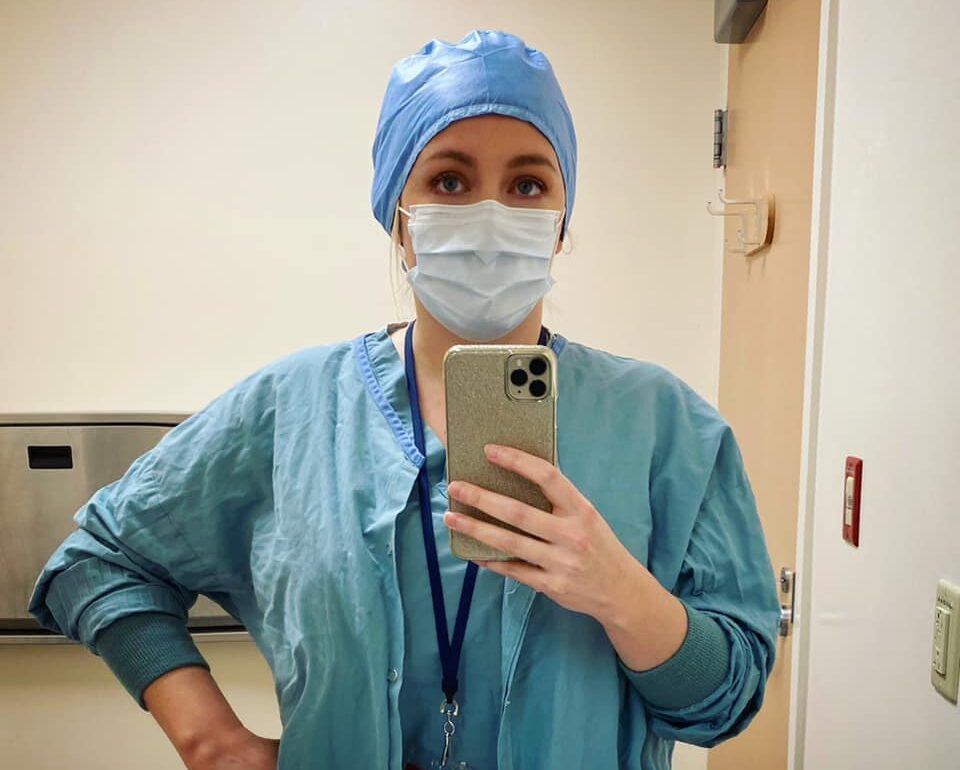
Conquer Divide guitarist Kristen Sturgis never stops between her music career and full time medical service job as an intensive care unit nurse. Due to the high veracity of working directly on the front lines of the Coronavirus outbreak, Sturgis shared some of her first hand experiences to explain the true horrors that are happening behind medical bay doors. You can read her full, heartbreaking message below.
“I haven’t posted in a while other than sharing an occasional article because I’ve been working 60-72 hours a week on a COVID ICU in Michigan. I’ve been debating on posting this for a while.
I’ve been fighting an invisible enemy and haven’t really had time to process it all and reflect on what’s happening because I’m too exhausted to think about it. Thankfully, because of social distancing, things have finally slowed down a bit for us. But I fear that won’t last very long.
Over the last two months, I have seen many, many people lose their battle with COVID, many being younger than me. A 27 year old, a 31 year old husband with small kids, even fellow coworkers have been taken out by this virus just to name a few. At least 20% of the patients in our ICU at any given time are under 35. And the sinking reality that most of the patients who reach the point of intubation never leave the ICU, alive at least.
As a nurse taking care of these people, you feel sad but you have to push these realities and emotions down so you can do your job effectively. If you dwell for too long on it won’t be good at your job. I’m used to seeing death in my career. It comes with the job. While every death is sad, the hardest part is seeing the younger cases. The people who haven’t had a chance to live their lives yet. The people with small children, the ones that just graduated college and have barely started their careers. The ones still in college with everything to look forward to, the ones who are otherwise healthy but whose only downfall was a history of childhood asthma. I’m honestly tired of putting people in body bags. Exhausted really. I have never seen this many deaths in my entire career in such a short period of time.
We are doing all we can but we are still learning about the virus and are very far behind the curve.
The patients all present the same way. First they come in short of breath and maxed out on nasal cannula oxygen sating in the 80’s or lower. Normally, the next step is bi-pap, but we can’t do that without aerosolizing the virus. So they go straight to intubation.
What people don’t seem to understand is that everything in your body is connected and one organ’s failure has an eventual domino effect on all of your other organs.
Long story short, your body tries to fight the virus and ends up making the situation worse by flooding your lungs. So now you’re in ARDS, which is a fancy way of saying lung failure. You can’t exchange oxygen and co2 anymore with lungs full of fluid. We try to adjust the ventilator settings to keep their lungs expanded so they can get greater gas exchange, but since the lungs aren’t working they become less elastic and start to pop like a balloon. Now they’ve got a holes in their lung (pneumothorax) to complicate things further and we put a chest tube in to keep it inflated. Then their lungs start to get scar tissue in them from the virus damaging the alveoli. Those scarred areas can no longer oxygenate your body. In fact many who do survive COVID will have permanent damage from this.
You now go to turn your patient, because if you don’t they will get bed sores, and even the smallest movement can cause a chain reaction and make their oxygen saturation drop dangerously low. It can be as little as a mucous plug in their tube that makes their sats drop below 60% and if you are lucky to get it out of their breathing tube it takes them hours to recover. I’ve had several patients die this way. I am now afraid to move my patients even though we have to.
If they don’t recover their sats , their only option is an ecmo machine, which is a heart lung bypass machine that can oxygenate the blood without use of lungs. But just like the ventilator shortage, there is an even greater shortage of ecmo machines and highly specialized nurses and doctors to operate them. Since there’s only a handful at any given hospital, and generally only level one trauma centers have them, so good luck getting one if you are over 40 and in the wrong hospital. And if we can’t wean you off of ecmo, you will need a lung transplant, and your five year transplant survival rate is 50%. It’s pretty grim.
When your body is overwhelmed with infection, your blood pressure drops. Dangerously low. So now your patients blood pressure is tanking and you have to max out all of their vasopressor drips.
Since we are pumping them with all these medications to support their vital organs, which helps keep them alive and comfortable on the ventilator, the prolonged use of these medications cause their kidneys to shut down because they are nephrotoxic. Not to mention the loads of opioids we have given them to help keep them sedated and breathing in sync with the ventilator, these meds also shut down their bowels.
Now their kidneys are now beginning to fail. When your kidneys don’t work, you can’t urinate. All that extra fluid builds up in your lungs (pulmonary edema) and puts stress on your heart. Your heart has to work a lot harder to pump extra liters of fluid around. And it’s already under stress from the virus. You also hold on to acid, which makes your body’s PH drop. Your kidneys and your lungs help regulate your body’s PH, but now both of those options are impaired. Your patient is now in acidosis.
So now your patient requires dialysis, but they are too sick to have normal dialysis because it can tank their blood pressure, so they need continuous dialysis that runs at much slower rate. CRRT.
Since they aren’t moving and are on a slow dialysis, they are at a high risk for blood clots. So now we have to start them on a continuous blood thinner drip.
But then they develop a bleed in their GI tract from the blood thinner, so now we have to turn the blood thinner drip off.
And now that the blood thinner is off, it’s a matter of time before they are getting blood clots in their legs. When we turn them, or flip them on their stomach to help them breath easier, these blood clots often break away from their leg or from their dialysis line and travels up to their lung where it inevitably gets trapped, and cuts off all or most of the remaining oxygen supply to their lungs.
(We can sometimes give them clot busting medications, but then you run the risk of a massive brain bleed (stroke).
The heart responds by beating faster to try to compensate for the lack of oxygen, but that faster rhythm requires the heart to have even more oxygen than normal, which it’s not able to get. So now your patient is in ventricular tachycardia which is a lethal rhythm that isn’t sustainable for very long. You try to hurry and get the paddles on your patient. You know you will have to shock them out of it and fast. But before you can get them hooked up, the heart begins to quiver like jello and eventually comes to a full stop because it cannot pump for very long without a consistent oxygen supply. The heart is greedy and needs a lot of oxygen.
We frantically start CPR and push more meds like epinephrine to no avail because the lungs are so badly damaged and full of holes and fluid they cannot exchange gas anymore even if we do manage restart your heart. And at this point your brain has probably been without adequate oxygen for too long so it is now likely that if you do come out of this, ‘the lights are on but no ones home’ as they say.
The doctor tells you to stop CPR because it’s literally futile. The lungs are too far gone. And there’s no ecmo machines left in the hospital. And even if there was, by the time we got them hooked up to one there’s a good chance they have an anoxic brain injury.
This all happens so fast that many times we don’t have time to call family and tell them what’s happening until after they’re gone.
And since there are no visitors allowed, these patients are usually dying alone. Imagine dropping your loved one off at the hospital to never see them again. Imagine your last interaction with them is seeing them via FaceTime but they can’t respond back to you because they are in a coma.
This is what happens over and over and over. Sometimes 2-3 deaths a day in our ICU. And soon as those rooms empty out they fill right back up. We try to support the patients while they fight this virus, but like clockwork, they just can’t overcome it in time and you watch the same cascade of events happen. You wonder if the life saving measures you take do more harm than good. But there’s currently no other viable treatment options.
We made an exception and allowed a patients wife to come up and visit her 30 something year old husband just before his heart and lungs gave out, and gave her adequate PPE to wear in the room. The most heartbreaking thing was having to tell her through her tears that she needed to wash her hands, put a new pair of gloves back on or leave the room because she wasn’t allowed to physically touch her husband without them on. (Because she could spread the virus to us, her kids or others). She knew she needed to have them on, but she just wanted to touch her husband one last time. I can’t imagine and don’t want to imagine being in her shoes.
I have been one of the lucky few nurses that has PPE, but the ‘what if’ still worries me. What if I forgot to bleach something, what if I caught it from a coworker who was asymptomatic. What if I take it home to my husband. What if my hospital starts rationing supplies.
Every single day I bleach my phone, credit cards, car keys and anything else in my pockets before I leave work. I change my clothes. I bleach my shoes. I have a cover over my drivers seat so I don’t contaminate it. I change my shoes before I get into my car. I get home, i leave those ‘clean’ shoes at the door, I strip my scrubs off and go straight to the shower. My work bag stays in the car. I use detergent that kills germs but makes my skin itch. You can only hope even after all this that you don’t bring anything home.
It’s hard to describe the past few weeks. I’m a mixture of sad and angry, at all of the protesters who clearly haven’t lost a loved one to this. Disillusioned by the anti-science rhetoric in this country due to a lack of education. Upset at people comparing this temporary quarantine inconvenience to nazi Germany. Get over yourself, Karen. The jobs will return, your mom/dad/grandparents/cousin/brother/sister won’t.
To those who refuse to stay home and continue to risk the lives of myself and others for a mild inconvenience, please go ahead and sign your DNR form.
To those who are anti science and won’t get a COVID vaccine when it’s available, because bIG pHarMa pOisOned tHe vAcCines- please don’t call 911 or come to the ER when there’s an emergency to get those life saving ‘big pharma’ medications either.
To those who think the virus isn’t even real, Please educate yourself and take a microbiology class at your local community college.
To the hospital administrators who don’t supply their nurses and doctors with enough PPE, your day in court is coming.
To those who inevitably try to argue with me, because this is the internet, don’t bother because I will delete your comments. I am not here to debate. Until you’ve worked in a COVID ICU, ER, or lost a loved one to this, you don’t get a say. I will not entertain an opinion that isn’t based on reality or science. People no longer value experts and conflate facts with opinions too much as if the latter holds any weight. News flash, it doesn’t.
It might sound harsh, but people need a real wake up call.
Signed, just someone on the front lines.”
Let us know what you think about Kristen’s thoughts and anything else you’d like to discuss in the comments.



